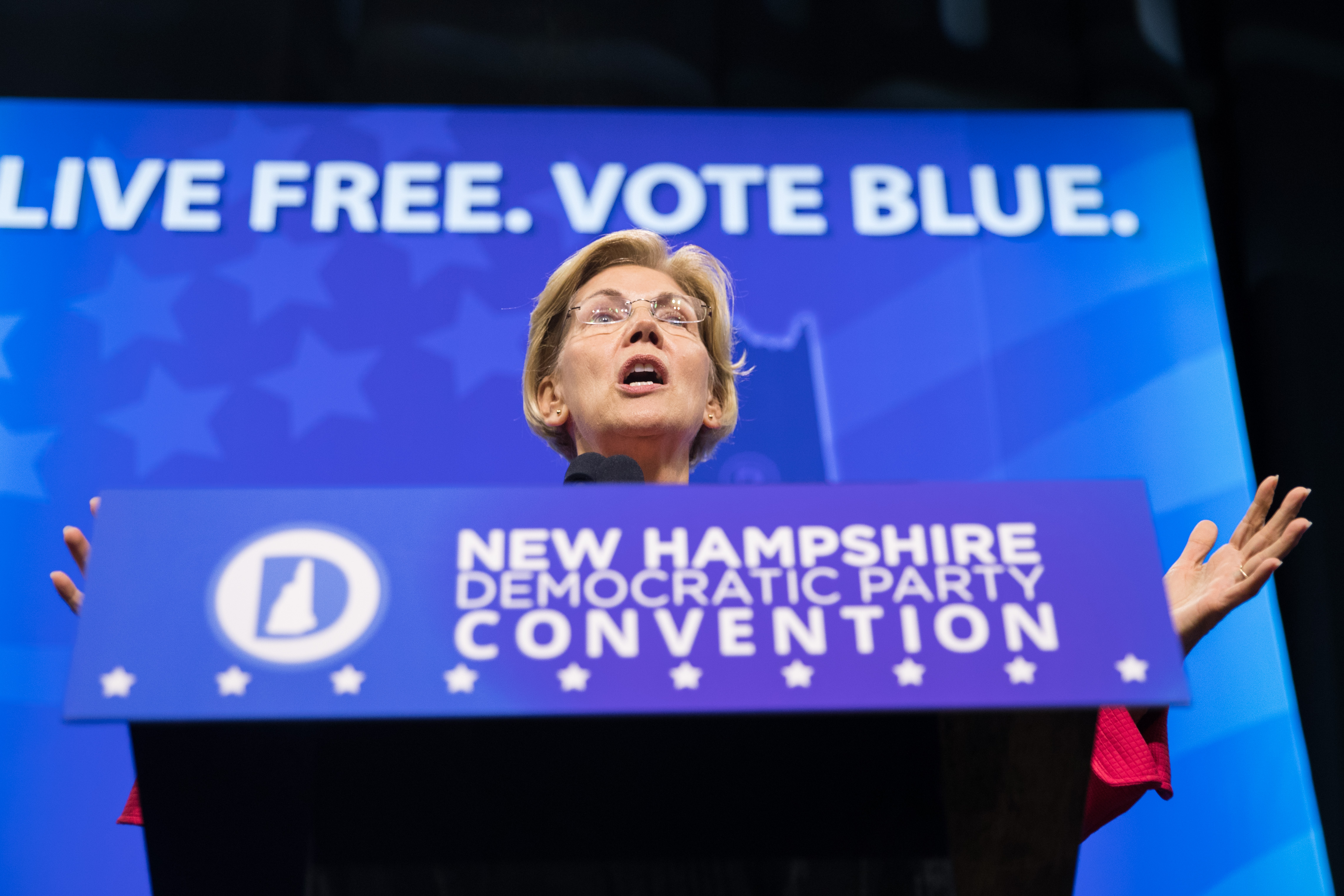What to look out for in tonight’s Democratic primary debate
Joe Biden and Elizabeth Warren go head-to-head for the first time tonight in Texas


A free daily email with the biggest news stories of the day – and the best features from TheWeek.com
You are now subscribed
Your newsletter sign-up was successful
The ten top-polling contenders for the Democratic primary will take to a single stage for the first time tonight, marking the beginning of an intensified autumn campaign period designed to whittle down the field.
Polls have established three frontrunners, with former vice president and centrist Joe Biden narrowly leading left-wing candidates Bernie Sanders and Elizabeth Warren. These are the only candidates who consistently register double-figure support, but commentators expect there is still room for a late surge from an unexpected hopeful.
The most highly anticipated clash at tonight’s showdown in Houston, Texas, however, will be between the two frontrunners who have yet to confront each other on stage: Biden and Warren, who is the only candidate to have consistently risen in the polls since the contest began.
The Week
Escape your echo chamber. Get the facts behind the news, plus analysis from multiple perspectives.

Sign up for The Week's Free Newsletters
From our morning news briefing to a weekly Good News Newsletter, get the best of The Week delivered directly to your inbox.
From our morning news briefing to a weekly Good News Newsletter, get the best of The Week delivered directly to your inbox.
“Not only do Mr. Biden and Ms. Warren represent a clash of ideology and style, but their candidacies frame one of the essential questions of 2020,” argues The New York Times. “Do Democrats prioritize a restoration of normalcy post-President Trump, as Mr. Biden has pitched? Or, do they prefer a more fundamental restructuring, as Ms. Warren has promised?”
A new NPR/PBS NewsHour/Marist poll, published yesterday, found that 75% of Democratic voters have a favourable impression of Warren, up from 53% in January, while the percentage who have a negative impression has dropped from 17% to 11%.
“Elizabeth Warren seems to be on the verge of starting to make significant and serious inroads into this contest,” said Lee Miringoff, director of the Marist Institute for Public Opinion, which conducted the poll. “Heading into the debate, she is very well-positioned.”
Representative Seth Moulton, who ended his own primary bid last month, concluded that “this is now a three-way race between Biden, Warren, and Sanders”.
A free daily email with the biggest news stories of the day – and the best features from TheWeek.com
Biden, who has led the field since he announced his candidacy in April, will be standing in the centre of the group on stage in Texas tonight, directly between Warren and Sanders, two disruptive, left-wing politicians. A concern for him will be the apparent non-aggression agreement - tacit or not - that has existed to date between the two progressives.
Not only could this present a rhetorical issue for Biden on stage, it also serves as a reminder of the political force he would face if supporters of either Warren or Sanders coalesce behind one of them.
Nevertheless, despite the fact that coverage focuses on the ideological and policy differences between the candidates, polls suggest that primary voters will choose their candidate on electability before they consider policy sympathies. In other words, voters are signalling they will vote for the candidate they think has the best chance of beating Donald Trump.
Another survey commissioned by CNN, and carried out by SSRS, found that, “as they have in past polls, Democrats are more apt to say they want the party to nominate a candidate with a strong chance of beating Trump (55%) over one who shares their position on major issues (39%)”.
Biden, who leads the field largely thanks to his support among African-America voters - with 42% backing him as opposed to 12% for his nearest competitor, Sanders, in the SSRS poll - will hope that he can make the case for his electability as the field winnows, drawing voters scared of a Trump victory behind his candidacy to overcome the undoubted proggressive sympathies of the Democtratic electorate.
The Guardian details the others who will flank Biden on the stage: “Beyond the top three candidates, the California senator Kamala Harris and South Bend mayor Pete Buttigieg are looking to regain the momentum that propelled their candidacies earlier in the primary. Rounding out the stage are the Minnesota senator Amy Klobuchar, the New Jersey senator Cory Booker, former Texas congressman Beto O’Rourke, former housing secretary Julián Castro and the only non-politician, tech entrepreneur Andrew Yang.”
Each candidate here, particularly centrists Harris, Buttigieg and Booker, will be calibrating their performance and policies in the hope that if Biden falls, they will be the figurehead to unite the centrist vote.
“The middle is the perfect place to be at this point in September,” said Virginia Representative Don Beyer, who supports Buttigieg. Beyer likened Buttigieg’s campaign to that of Barack Obama, arguing that Democratic voters are drawn to “young, articulate candidates with bold, fresh ideas”.
Yang is a Silicon Valley entrepreneur who’s central campaign pledge is a universal basic income. He has used social media skillfully to generate international interest in his candidacy.
In good news for Democrats, whose emotional scars from the 2016 election defeat are far from healed, a Washington Post-ABC poll released on Wednesday saw Trump trailing each of the top five Democratic contenders - Biden, Warren, Sanders, Harris and Buttigieg - when voters nationally were asked who they would vote for if the 2020 election was held today. According to the poll, Biden carried a 15 point lead over Trump.
The news outraged the president:
William Gritten is a London-born, New York-based strategist and writer focusing on politics and international affairs.
